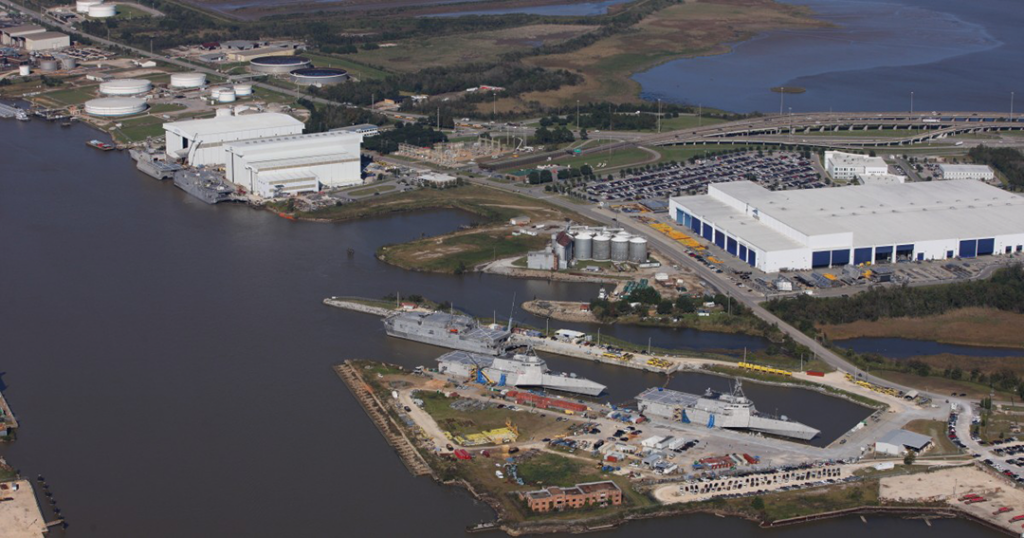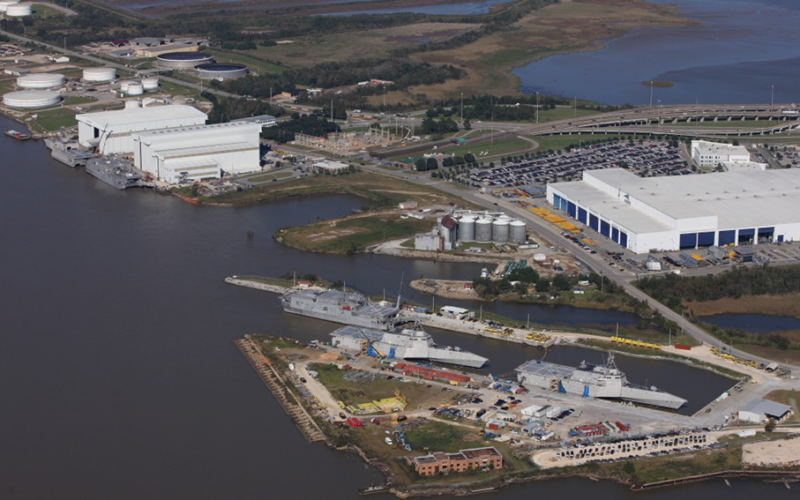
Shipbuilder Austal USA has begun the design phase for an expansion of its Mobile, Ala. shipyard that includes construction of a new assembly building, waterfront improvements, and a Pearlson-designed shiplift system.
Work on the project is expected to begin this summer and, when completed, “will allow the company to haul out large ships for maintenance; fulfill more than $6 billion in U.S. Navy and U.S. Coast Guard contracts; compete to become the follow yard for upcoming Navy frigate production; and provide flexibility to build submarine modules,” according to Larry Ryder, Austal’s vice president – business development and external affairs.
When the expansion is completed, the shipyard will include a 117,000-
square-foot steel panel line, two module manufacturing facilities totaling over one million square feet of covered manufacturing space optimized for serial production, and seven assembly bays providing over 400,000 square feet of indoor space.
In all, the Mobile facility covers 180 acres and, when the growth project is completed, the yard will feature more than 1.5 million square feet of indoor manufacturing space with 600-700 new employees added to its current roster of 3,200 workers.
According to Bryan S. Fraind, president of Pearlson Shiplift Corp., the lift at the Austal yard will feature an articulated lifting platform approximately 450 feet long and 125 feet wide and be capable of lifting and launching vessels in excess of 18,000 long tons. That includes the Navy’s Austal USA-built TAGOS-25-Class ocean surveillance ships, Independence-Class littoral combat ships, and the U.S. Coast Guard’s Heritage-Class offshore patrol cutters.
In 2022, Austal USA was awarded a contract by the U.S. Coast Guard worth $3.3 billion to build 11 offshore patrol cutters, and in 2023, the Navy awarded the company a $3.2 billion contract to build seven TAGOS-25 ocean surveillance ships.
The new Coast Guard and Navy deals spurred the decision to expand its footprint with the company stating that enhancing the yard’s capabilities was “necessary to fulfil those contracts.”
In addition to enhancing Austal USA’s long-standing relationship with the Navy and the Coast Guard, the facility expansion will allow the company to compete for employment as the ‘follow yard,’ or second shipyard, for the Navy’s 20-ship Constellation Class frigate program.
“With us, modules are the key to our production process,” said Austal USA’s Larry Ryder.
“The new building will have heavier frame and floor capacity, and that will enable us to build larger modules. Larger modules means greater efficiency and fewer modules to piece together to create the ship.”

